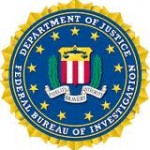 The United States will send a Federal Bureau of Investigation (FBI) team to help Lebanon probe the Beirut car bombing that killed the country’s internal security chief, officials said Monday.
The United States will send a Federal Bureau of Investigation (FBI) team to help Lebanon probe the Beirut car bombing that killed the country’s internal security chief, officials said Monday.
Lebanese troops deployed in Sunni areas of the capital as more sectarian violence erupted, stoking fresh fears after a top security official was killed in a bombing blamed on neighboring Syria.
But U.S. Secretary of State Hillary Clinton stressed Washington’s support for Lebanon’s sovereignty, in a phone call with Prime Minister Najib Mikati, State Department spokesman Mark Toner said.
“There is going to be an FBI team headed to Lebanon to help them with their investigation. But we’ll certainly wait for the results of that investigation” before deciding any further response, he told reporters, according to AFP.
Describing Clinton’s conversation with Mikati, he said “she was very, very clear in stressing our support for Lebanon’s sovereignty” and also “stressed the importance of all political leaders working together.”
He did not say whether the FBI team had already arrived in Lebanon, where there have been violent protests since Friday, when police intelligence chief General Wissam al-Hassan died in the Beirut bombing.
“It’s a very sensitive time,” he added, saying: “There’s an investigation under way, and we’re going to look to the results of that investigation. And we also would urge calm.”
On Friday, the United States condemned the blast as a terrorist strike. And on Sunday, Clinton underscored “the United States’ firm commitment to Lebanon’s stability, independence, sovereignty and security.”
Hassan’s funeral on Sunday had been billed as a protest against Syrian meddling in Lebanon, but quickly turned into anger at Mikati, whose government is dominated by pro-Syria parties.
Despite calls for him to quit, Mikati said he would stay on at President Michel Suleiman’s request to avoid a “political vacuum” in volatile Lebanon.
The opposition has widely blamed Syrian President Bashar al-Assad for Friday’s attack, as it did in 2005 when former premier Rafiq Hariri was killed in a huge Beirut blast.
The army said it was determined to restore order, but the northern port of Tripoli was also shaken Monday by fighting between partisans and opponents of Assad that killed seven people.
On Monday afternoon personnel carriers entered Beirut’s Sunni district of Tariq Jdideh, which had been a hotspot all day. Soldiers took up position on streets leading into the district to keep them open, a military spokesman said.
Six people were wounded when the army made a pre-dawn sweep of Tariq Jdideh in pursuit of armed men, and automatic weapons and anti-tank rocket fire could be heard.
Later, soldiers responded after being fired on as they tried to clear a road into the district, a stronghold of opposition leader Saad Hariri. His supporters had blocked it despite calls by the former premier to stay off the streets.
The army spokesman said a 20-year-old Palestinian, Ahmed Quaider, was shot after firing at an army patrol.
In Tripoli, a Sunni bastion where opposition to Assad is strong, seven people were killed and 12 wounded during clashes between Sunnis and Alawites, an offshoot of Shiite Islam to which the Syrian president belongs, security sources said.
Two Alawites and five Sunnis died.
The same sources reported snipers in the city late on Monday.
Clashes have erupted regularly in Tripoli as tensions spill over the border from Syria, where a 19-month-old anti-regime revolt has left more than 34,000 people dead.
A statement from the army high command said it was “committed to its role of stopping security breaches and maintaining civil order.”
The statement acknowledged that the country was “going through a critical time,” but said the army would act to prevent the assassination of Hassan being exploited as an “opportunity to murder the nation as a whole.”
Lebanon is a multi-faith country in which Christians, Shiite and Sunni Muslims each make up about one-third of the population.
Under a complex but unwritten arrangement, the president must be a Maronite Christian, the premier a Sunni and the speaker of parliament a Shiite.
Sunnis are furious over what they call the Syrian assassination of Hassan, also a Sunni, who was noted for pursuing alleged Syrian crimes in Lebanon including the 2005 assassination of Hariri’s father, Rafiq.
Clashes between Sunni and Shiite gunmen in Beirut in 2008 brought Lebanon close to a new civil war and there are fears it will be further destabilized by the conflict in Syria.
Lebanon is still haunted by its 1975-1990 civil war, which made Beirut a byword for carnage and wrecked large parts of the city.
Since then it has undergone an ambitious reconstruction program and enjoyed periods of economic prosperity due to its role as a trading, financial and tourist center. All that is now threatened.
The crisis underscores local and international concern that the uprising against Assad is dragging in Syria’s neighbors, which include Turkey and Jordan as well as Lebanon.
Ambassadors from the United States, China, Russia, Britain and France met Suleiman on Monday and appealed to Lebanese leaders to resolve the situation peacefully.
One Western diplomat, asked if he thought the Mikati government would survive, told Reuters: “I think it looks more likely today than yesterday that he will come through in the short term. It will take time to form a consensus on an alternative and in the meantime the security situation needs time to recover.”
Al Arabiya

Leave a Reply
You must be logged in to post a comment.